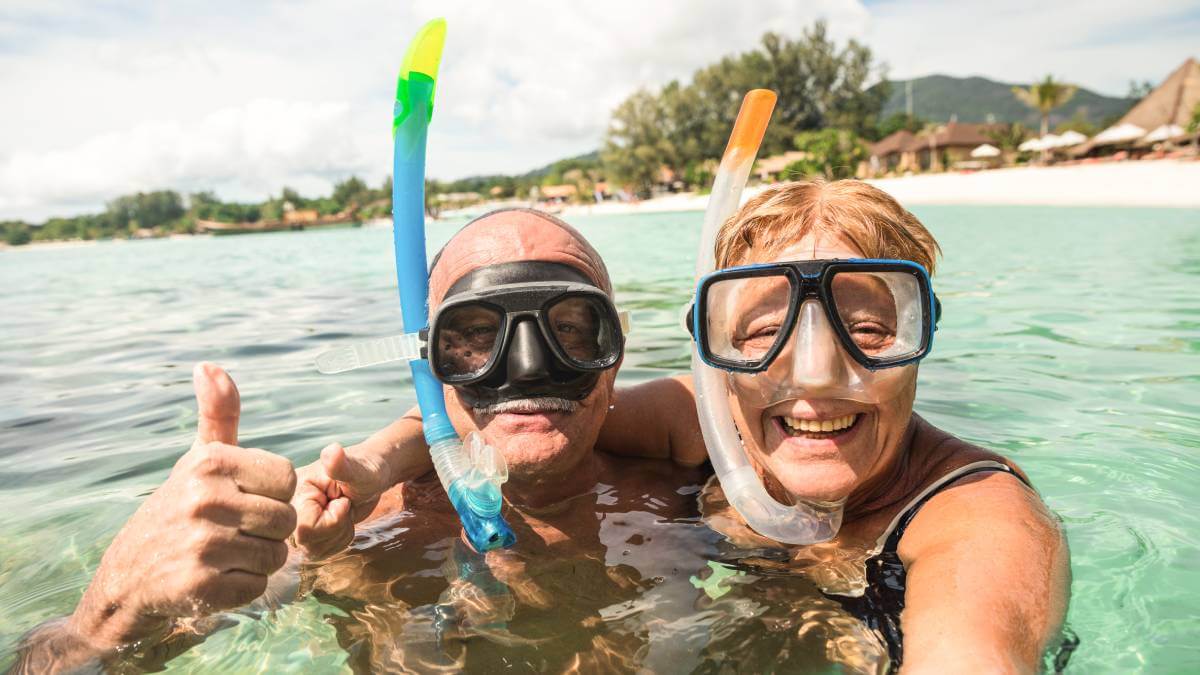here is a significant opportunity to take advantage of the untapped market of silver tourism, paving the way to not only grow the economy but also offer an ever-increasing ageing population the opportunity to maintain quality of life.
A new study by Edith Cowan University (ECU) has noted that increasing life expectancy and declining fertility are contributing to rapid ageing in the global population. By 2020, around one billion of the global population was aged over 60 and 727 million over 65.
The figures are projected to reach 2.092 billion and 1.6 billion, respectively, in 2050.
Lead researcher Fangli Hu, a PhD candidate at ECU, noted that countries such Japan, South Korea and Italy were already considered to be ageing or even super-ageing societies.
“There is a community-wide effort to promote healthy ageing, but the role of tourism as an important service industry in this process has been underappreciated,” Ms Hu said.
Support healthy ageing
“Tourism and hospitality, one of the largest industries globally, is duty-bound to participate in initiatives to support healthy ageing.
“Although extant tourism and hospitality research has identified this niche market, attempted to understand its travel behaviours, and proposed senior tourism, silver tourism, and geriatric tourism to accommodate the ageing population, the industry is still far from creating age-friendly destinations.
“Considering their strong buying power, abundant leisure time, and high travel willingness, the aging population has been identified as an unignorable tourist group,” Ms Hu said.
However, researcher Dr Jun Wen noted that service discrimination and tourism inequalities against older adults are still prevalent.
“More leisure time and disposable income make the ageing population an important and fast-growing tourist segment, but greater vulnerability and group diversity complicate the travel behaviours and psychology of older adults, resulting in higher demands for products and services.
“Therefore, it is imperative to pursue more in-depth research and make greater efforts to enable this niche market to enjoy tourism.”
Dr Wen said significant investment would need to be made in infrastructure and training to capitalise on ‘silver’ tourism.
Service standards
“The training is especially important for frontline service employees. They currently don’t have the knowledge and experience needed to interact with people living with certain health conditions.”
Researcher Associate Professor Joshua Aston said the demographic is often seen as requiring significant support and a burden on society. These views not only infringe upon their fundamental human rights but also hinder their full integration into society.
Dr Aston said that despite advancements, discrimination in services and tourism inequalities against older individuals persist.
“While the ageing population represents a crucial and rapidly expanding tourist segment, with more leisure time and disposable income, their vulnerability complicates the understanding of their travel behaviours,” Dr Aston said.
Health benefits
Ms Hu noted that travel could serve as a potential support for healthy ageing and improve the health and quality of life for this sector of the population, in addition to contributing to the quest for equal rights among this group.
“COVID-19 highlighted the health value of tourism in public health beyond lifestyle and economic factors. Specifically, travel can be a non-pharmacological therapy,” she added.
“It can contribute more to the functional ability to facilitate healthy aging than single-dimensional activities.
“However, despite increasing interest in the health benefits of tourism, the tourism and hospitality literature has focused more on the impacts on the younger and healthier populations, and less on its potential role for senior tourists and healthy ageing,” Ms Hu said.
“Tourism has the potential to promote mental health of people with autism, depression, dementia, and other conditions, and could be as therapeutic as other non-pharmacological interventions such as music therapy.
“Travel therapy may serve as a promising non-pharmacological prevention and treatment for everyone, notably the ageing population, a group that is at elevated risk for chronic diseases. Thus, deeper reflection and exploration of the role of travel therapy in healthy ageing is highly essential.”
The study, as it appeared in the Journal of Hospitality and Tourism Management, can be found here.
Do you think the senior travel market is being well serviced? How do you think it could be improved? Why not share your opinion in the comments section below?


I have found many hotels, have showers over a bathtub, very difficult and dangerous as you get older
A larger percentage of the Seniors travelling Travel solo for whatever reason, the single supplement at times is exorbitant, very few want to share with strangers when travelling